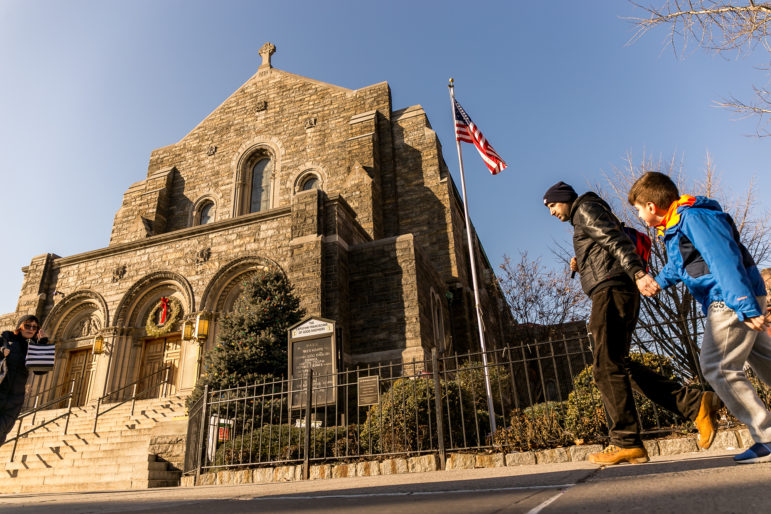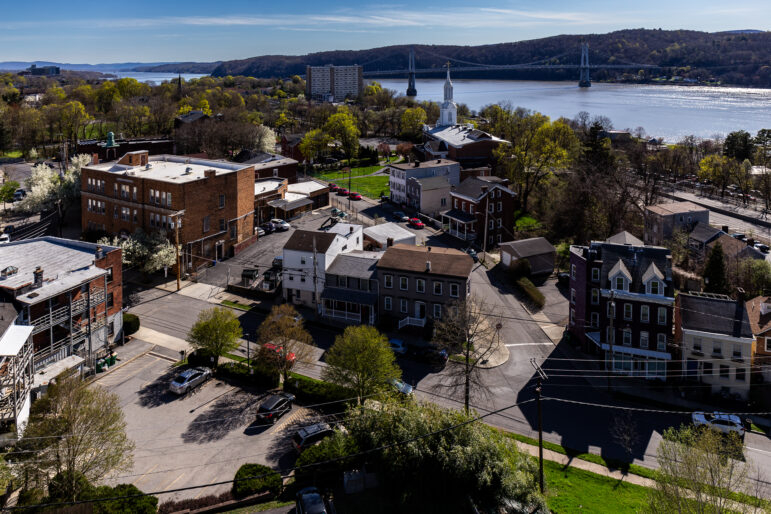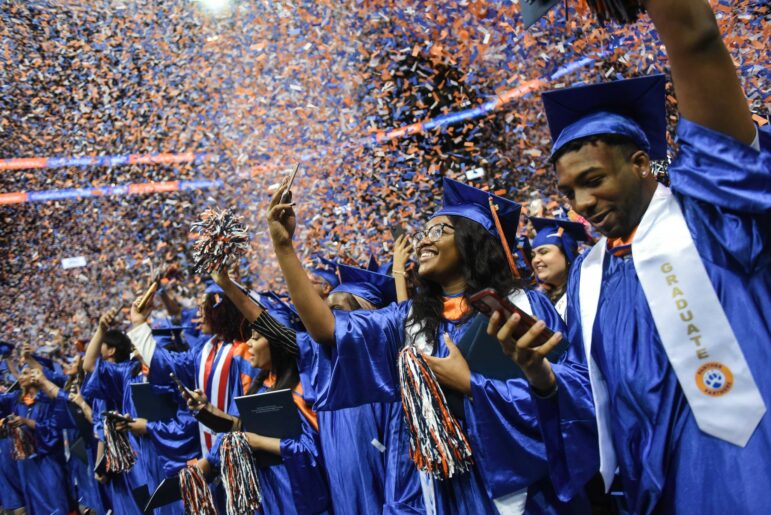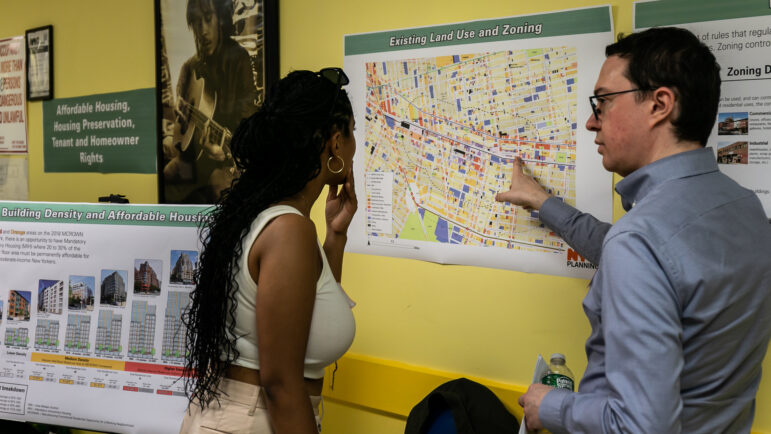Alex Khalil says he’s not a film junkie. “No, no, I don’t care,” he shrugs, folding his arms and leaning back in his chair at Veniero’s café. “I’m not a film buff. Seriously.”
“No, no, he is a film buff, but he-he doesn’t like to say it, but he is a film buff,” cries his horrified friend, Ahmed Issawi, waving his spoon. “He’s keeping the focus on the community!”
Khalil maintains, deadpan, that film is simply the easiest means to an end-helping Arab and Persian culture to flourish in the city of New York-while Issawi shakes his head hopelessly.
If he really doesn’t care about film, Khalil has found an odd way of showing it. In 1998, he created Alwan, an organization that shows screenings and festivals of hard-to-find films from Arab countries and Iran. Alwan, which means “colors” in Arabic, started out small: an occasional film series, and a listserv that announced cultural events. But with the help of Issawi–who, for the record, is a “great film buff”–Alwan has gradually created a thriving underground film scene, at the same time feeding a growing renaissance of Arab and Persian culture.
“It’s a very low-profile community, the Arabs,” says Inea Bushnaq, who helped coordinate an exhibit on Arab Americans in New York City currently showing at the Museum of the City of New York. “But in the last 10 years there’s been an active consciousness–like Alwan.”
For people from Arab countries, the chance to see a film from home is rare. Abdeen Jabara, an Arab-American civil rights attorney, remembers when the film West Beirut came out; he bought a tape, made copies and gave them to everyone he knew. Likewise, for a serious film scholar, seeing movies from the heyday of the Egyptian and Syrian film industries–at one time, the Bollywoods of the Arab world–is a treat.
Originally, Alwan’s audience consisted of filmmakers, film students and “Arabs in the city,” as one longtime fan put it. But with time, word of mouth, and post-September 11 interest in all things Arab, Muslim or just plain foreign, Alwan’s audience has evolved: At first a way for people from Arab countries and Iran to see films from home, it’s now taken on the role of cultural ambassador to unhyphenated Americans. “It helps to keep the members of our community in contact with portrayals of life in that region, and it helps to introduce our fellow Americans to the culture of that region,” says Jabara. “So it’s both a source of maintaining contact, for those who are Arab-American or Iranian-American, and a source of information and exposure for those who are not.”
At their late February film festival, Issawi worked the line, greeting friends, as hundreds of people packed the lobby of New York University’s Cantor Film Center trying to get tickets. Even after the film began, latecomers waited outside, hoping others would leave. One Algerian woman, in her seventies, came all the way from Connecticut, only to be turned away because the Algerian film she wanted to see, The Perfumed Garden, was sold out. (NYU nixed Khalil’s attempts to let people stand.)
“You know Alex and Ahmed-it’s like their whole life,” laughs Annemarie Jacir, a Palestinian filmmaker doing graduate studies at Columbia. “In the beginning, people didn’t really know about it. As time has gone by, you see people from all over the city.”
Their newfound visibility does have its strains. Khalil has always made a point of keeping Alwan apolitical, confining his 1800-member listserv to announcements of events that are strictly cultural-even excluding good friends. “If you look at the way the community works, there is an overflow of [politics], and nothing but,” says Khalil. “And a good part of that community is a bit turned off, because no matter which event they go to, somehow it ends up having a very strong political color-eventually they end up just refusing to go out. So you see them a bit estranged. And what we’re trying to do is provide events that are just culture, plain culture.”
For years, they avoided religion, too. But after September 11, they scrapped a previously planned retrospective of Egyptian and Iranian cinema and scheduled a series of films about Islam. It was tremendously popular.
The ultimate goal is to someday have a cultural center where they can host other forms of expression, too, such as music. But it’s slow going: Both have day jobs-Khalil, who has a degree in electrical engineering, fixes computers for Chase Manhattan Bank, while Issawi, who studied philosophy and literature, does curriculum development for international schools. Neither has much time to chase down funding.
So far, they get by on “little pockets of help”: mostly their own money, donations from friends and one-time grants. “Our proudest accomplishment, at least as far as I’m concerned,” says Khalil, “is that we exist.”








